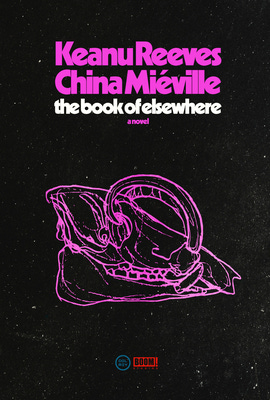Books Worth Your Time, Vol. 6
Ashutosh Joshi, Meaningful Work (and the Protestant Work Ethic), new Miéville
On July 22, we’ll have our first members-only Zoom to discuss Books I-III of Aristotle’s Nicomachean Ethics. If you want to participate, you can subscribe to Walking Away (and also earn my gratitude).
Today’s edition of Books Worth Your Time features two books I was given for free. I have received no money for reading or reviewing these books. But I thought it would be good to talk about my policy here when it comes to free books and my responsibility to you, the reader.
Free books are helpful to people like me – people who read and write for a living – because it seriously cuts down on our expenses. But they also clearly have a benefit for those who send the books, assuming this helps build publicity. Who gets left out of this equation? The reader — the person to whom I am ultimately responsible.
Most professional book critics get all of their books for free, and they don’t disclose this individually. I think it is just taken for granted, so I don’t blame them — and if they are actually acting as critics and not fans, it is fine.
On Walking Away (and on my YouTube channel) my policy is to always disclose when a book was given to me. That just feels right.
But here’s an important thing you need to know: I won’t talk about a book just because it was given to me. If I had to guess, I’ve received (or been offered) about 100 free books this year. I’m going to tell you about two of them. I have to want to talk about the book in order to bring it to your attention.
In brief: I’ll talk about the books I think are worth your time, and if I didn’t pay for it I’ll let you know.
Now, on to the books. (And if you get to the end, you’ll see a small announcement.)
And I must begin with an apology. Andrea Veltman’s Meaningful Work is out of print in hardback and still costs over $100 on Kindle. It’s shameful, though I don’t blame the author. University presses regularly charge eye-watering amounts for their books.
As part of a longer and larger project, I’ve been reading any book I can get my hands on about work — thus revisiting Marx, reading William Morris (as highlighted in last month’s edition of Books Worth Your Time), reflecting on St Benedict’s Rule. That brought me to Veltman. (I mention here that it is possible to find PDFs of chapters, if you wanted to try before you buy.)
Veltman asks a simple question: what is meaningful work? And it turns out that the answer is not-so-simple. We need to talk about the goods of a human life, the ethics of wage labor, and (for this I am especially grateful) Aristotle. Veltman’s thoughts closely mirror the thoughts I’ve been developing lately about what makes for good and meaningful work.
The Book of Elsewhere is a strange book. I haven’t finished it yet, as I only just received it (it was sent to me by Penguin Random House, along with an issue of the comic which inspired it), but I can already tell it is going to good. The fact that China Miéville, author of The City & The City and the Bas-Lag books, wrote it is evidence enough. It promises to be delightfully weird.
I was skeptical of Keanu Reeves’ involvement. I am letting my prejudices show here, but I don’t tend to think of actors as good writers (even when, like Reeves, I like them as actors). Most celebrities have ghostwriters for the autobiographies (truly stretching the meaning of ‘auto’), and the ones who try their hand at fiction without a ghostwriter tend to flounder. But I trust Miéville enough to make up for that — I don’t think he’d do a book like this just for the money.
If you like other Miéville books, you’ll likely enjoy this.
I could’ve sworn that I had mentioned Miéville before on Walking Away, but it seems I have not. I did however mention another of Miéville’s book in a recent video over on my YouTube channel. That was The City & The City, which I adore.
Keep reading with a 7-day free trial
Subscribe to Commonplace Philosophy to keep reading this post and get 7 days of free access to the full post archives.





